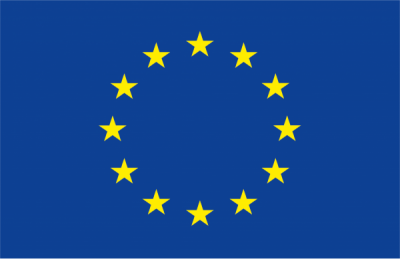
Coordinating Climate Action in the Eastern Mediterranean & Middle East: Initiatives in Research & Innovation and Policy
Side Event – MENA Climate Week in Dubai
Date & Time: 30 March at 12:45 (GMT+4)
About this event
Mobilizing commitments for limiting warming below 2°C with the speed, scale and effectiveness needed to keep this goal alive, requires acceleration and enhancement of collaborative scientific, technological and policy actions. The Eastern Mediterranean and Middle East (EMME) region is warming up faster than the rest of the world, and worsening extreme weather events are expected to have wide-reaching implications to human health and strategic economic sectors.
This session, organized by CARE-C, The Cyprus Institute, and the Eastern Mediterranean and Middle East Climate Change Initiative (EMME-CCI) in the framework of the 1st MENA Climate Week, will present new initiatives of regional interest within the remits of Research & Innovation and Policy, which aim to accelerate climate actions in the EMME, for the benefit of the wider MENA region and expected impacts globally. The session will showcase ambitious solutions and discuss opportunities to further enhance and accelerate collaboration with regional actors.
Research & Innovation: this segment will elaborate on the latest high spatial resolution regional climate change projection findings and challenges, and focus on breakthrough solutions to better monitor, report and verify at (sub)national scale regional greenhouse gas emissions (CO2, CH4) that have emerged through the ongoing scientific and technology work of the “EMME-CARE” research-&-innovation center of excellence, based in Cyprus, and dedicated to building regional capacity towards the goals of the Paris Agreement. Initiatives to be presented relate to:
- High-resolution regional climate projections and weather extremes: presenting the latest climate projections for the MENA as part of the World Climate Research Program (WRCP) “CORDEX” initiative and discussing human habitability in the Gulf region in-light of “super-extreme” heatwave events projected in the next decades.
- Innovative technologies for Greenhouse Gas emissions monitoring, verification and reporting: presenting solutions combining state-of-the-art ground-based environmental observations, space-borne earth observations from NASA and ESA satellites, and the latest developments of inverse atmospheric models. Focus will be given on regional methane emissions, identifying opportunities for joining forces to investigate mitigation strategies to reduce emissions, aligned to the United Nations Environment Programme (UNEP) International Methane Emissions Observatory (IMEO).
- New tools to monitor and better predict severe air pollution events and dust storms: showcasing recent advances in national capacity to monitor and forecast air-pollutants and desert-dust from the on-going “Pollution Management and Environmental Health Program” of the World Bank in Egypt, and the Horizon-2020 “EMME-CARE”-program of the European Commission in Cyprus.
Policy: this segment will present the scientific findings and political accords of the EMME Climate Change Initiative, a regional Initiative launched in 2019 by the council of Ministers of the Republic of Cyprus. The countries which participate in the Initiative are: Bahrain, Cyprus, Egypt, Greece, Iran, Iraq, Israel, Jordan, Kuwait, Lebanon, Oman, State of Palestine, Qatar, S. Arabia, Syria, Turkey and UAE.
This Initiative strives to initiate/enhance:
- EMME-focused Research towards: a) a detailed understanding and accurate forecasting of regional climate change impacts, b) the development of a science-based policy toolkit for the amelioration of the impacts of such phenomena and the identification of the appropriate adaptation and mitigation measures.
- EMME-specific Policies in coordination with transnational and multinational stakeholders (EU and UN) and organizations (WMO, FAO, WHO) to address the overall impacts of climate change and: a) support the implementation of the Paris Agreement and National Action Plans, b) adopt specific action programs for distinct sectors related to the economy and society, c) investigate specific techno-economic scenarios to mitigate climate change effects in the region, and d) identify the necessary resources for implementation of such an ambitious program.
To achieve these objectives, the Cyprus Institute formed several thematic Task Forces, comprised of regional and international experts who reviewed key areas related to specific impacts of climate change in the region, and provided a “toolkit” of possible concerted actions to address these. The results of these working groups were presented in the 2nd International Conference “Climate Change in the EMME” and COP26. A preparatory regional ministerial summit will follow, organized by the Ministry of Environment of Cyprus, to discuss a regional action plan to be refined during this year and approved by the heads of states at the end of 2022.
About the Middle East and North Africa (MENA) Regional Climate Week
MENACW 2022 provides a platform for governments, cities, private sector leaders, financial institutions and civil society to discuss opportunities to build forward from the pandemic by identifying opportunities to enhance climate action. The event will bring together key stakeholders to take the pulse of climate action in the region, explore climate challenges and opportunities and showcase ambitious solutions.
Read more & register : https://unfccc.int/MENA-CW2022



